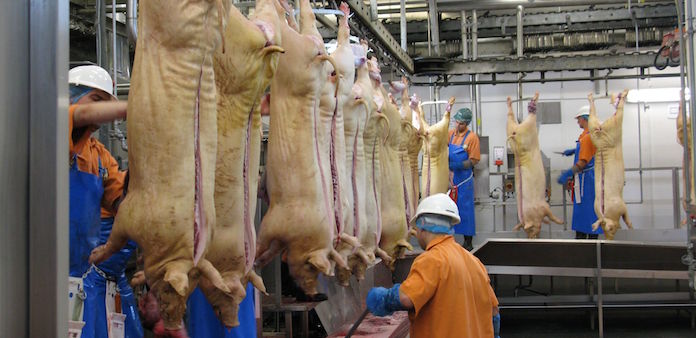The UK agricultural industry is becoming a less attractive place to work for Eastern European workers, at least if data from Google is to be believed.
Google searches by Romanian, Bulgarian and Polish citizens for agricultural jobs in the UK have fallen by 34% in the past year.
The fall in interest from abroad has not been matched by an increase in searches for agricultural sector jobs in the UK, according to GK Strategy and onefourzero.
The findings will come as little surprise to anyone connected to the pig industry, among other sectors of the UK farming industry.
An NPA survey last autumn found that 65% of members were finding it harder secure EU labour since the June 2016 Brexit vote. No respondents said it had become easier. Nearly a third of NPA members who replied said EU migrant labourers they employed had left the UK since the referendum.
Around half of members who continue to employ migrant labourers reported that their staff were considering leaving in the future because of Brexit.
As people increasingly research potential employers online, Google search data is a sound early indicator of changing behaviour and provides insight into the shifting patterns of EU nationals searching for work in the UK, communication specialists GK Strategy said.
This decline in interest, following the UK’s decision to leave the EU, could lead to a potentially serious recruitment crisis for the UK’s agricultural sector, which already has a 29% shortfall in seasonal workers, it warned.
Robin Grainger, GK Strategy’s group CEO said: “Declining online interest indicates an emerging workforce crisis for Britain’s agricultural industry. In the short term producers and representative bodies should work with Government to protect that vital pipeline of workers from abroad.
“In the longer term they should push for the implementation of a new migration system which recognises the reliance of our agricultural production on talented overseas staff.”
Fleur Hicks, chief executive at digital specialists onefourzero, said: “The bad news is that it is not clear if UK workers will step in to fill the vacancies as EU workers lose interest in coming to our shores. The data paints a clear picture of how Brexit continues to affect the desirability of the UK as a destination for work.”




